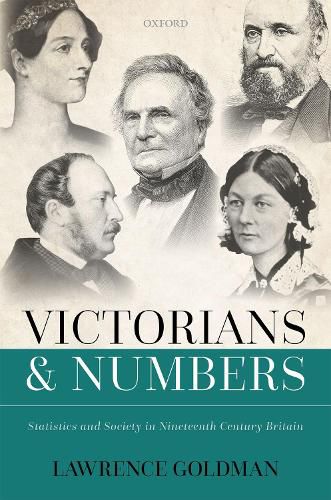Readings Newsletter
Become a Readings Member to make your shopping experience even easier.
Sign in or sign up for free!
You’re not far away from qualifying for FREE standard shipping within Australia
You’ve qualified for FREE standard shipping within Australia
The cart is loading…






A defining feature of nineteenth-century Britain was its fascination with statistics. The processes that made Victorian society, including the growth of population, the development of industry and commerce, and the increasing competence of the state, generated profuse numerical data. This is a study of how such data influenced every aspect of Victorian culture and thought, from the methods of natural science and the struggle against disease, to the development of social administration and the arguments and conflicts between social classes. Numbers were collected in the 1830s by newly-created statistical societies in response to this ‘data revolution’. They became a regular aspect of governmental procedure thereafter, and inspired new ways of interrogating both the natural and social worlds. William Farr used them to study cholera; Florence Nightingale deployed them in campaigns for sanitary improvement; Charles Babbage was inspired to design and build his famous calculating engines to process them. The mid-Victorians employed statistics consistently to make the case for liberal reform. In later decades, however, the emergence of the academic discipline of mathematical statistics - statistics as we use them today - became associated with eugenics and a contrary social philosophy. Where earlier statisticians emphasised the unity of mankind, some later practitioners, following Francis Galton, studied variation and difference within and between groups. In chapters on learned societies, government departments, international statistical collaborations, and different Victorian statisticians, Victorians and Numbers traces the impact of numbers on the era and the intriguing relationship of Victorian statistics with ‘Big Data’ in our own age.
$9.00 standard shipping within Australia
FREE standard shipping within Australia for orders over $100.00
Express & International shipping calculated at checkout
A defining feature of nineteenth-century Britain was its fascination with statistics. The processes that made Victorian society, including the growth of population, the development of industry and commerce, and the increasing competence of the state, generated profuse numerical data. This is a study of how such data influenced every aspect of Victorian culture and thought, from the methods of natural science and the struggle against disease, to the development of social administration and the arguments and conflicts between social classes. Numbers were collected in the 1830s by newly-created statistical societies in response to this ‘data revolution’. They became a regular aspect of governmental procedure thereafter, and inspired new ways of interrogating both the natural and social worlds. William Farr used them to study cholera; Florence Nightingale deployed them in campaigns for sanitary improvement; Charles Babbage was inspired to design and build his famous calculating engines to process them. The mid-Victorians employed statistics consistently to make the case for liberal reform. In later decades, however, the emergence of the academic discipline of mathematical statistics - statistics as we use them today - became associated with eugenics and a contrary social philosophy. Where earlier statisticians emphasised the unity of mankind, some later practitioners, following Francis Galton, studied variation and difference within and between groups. In chapters on learned societies, government departments, international statistical collaborations, and different Victorian statisticians, Victorians and Numbers traces the impact of numbers on the era and the intriguing relationship of Victorian statistics with ‘Big Data’ in our own age.